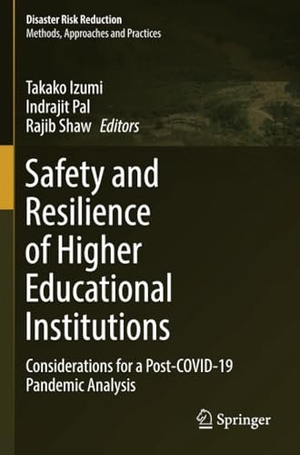Für statistische Zwecke und um bestmögliche Funktionalität zu bieten, speichert diese Website Cookies auf Ihrem Gerät. Das Speichern von Cookies kann in den Browser-Einstellungen deaktiviert werden. Wenn Sie die Website weiter nutzen, stimmen Sie der Verwendung von Cookies zu.
Cookie akzeptieren
Safety and Resilience of Higher Educational Institutions
- Springer Nature Singapore
- 2023
- Taschenbuch
- 272 Seiten
- ISBN 9789811911958
The world has spent the majority of 2020 enduring an unpreceded crisis caused by the COVID-19 pandemic. The impact of this crisis has been enormous, and the situation has yet to be resolved. It is still difficult to anticipate when the pandemic will end and how our lives will have changed after the crisis. Higher educational institutions (HEIs) have also had to undergo tremendous transformation, in particular, changing a conventional educational, teaching, and learning system to a digital and online mode and cancelling or postponing important events such as graduation and entrance ceremonies and entrance examinations. In addition, a number of HEIs have been facing financial
Mehr
Weniger
zzgl. Versand
in Kürze